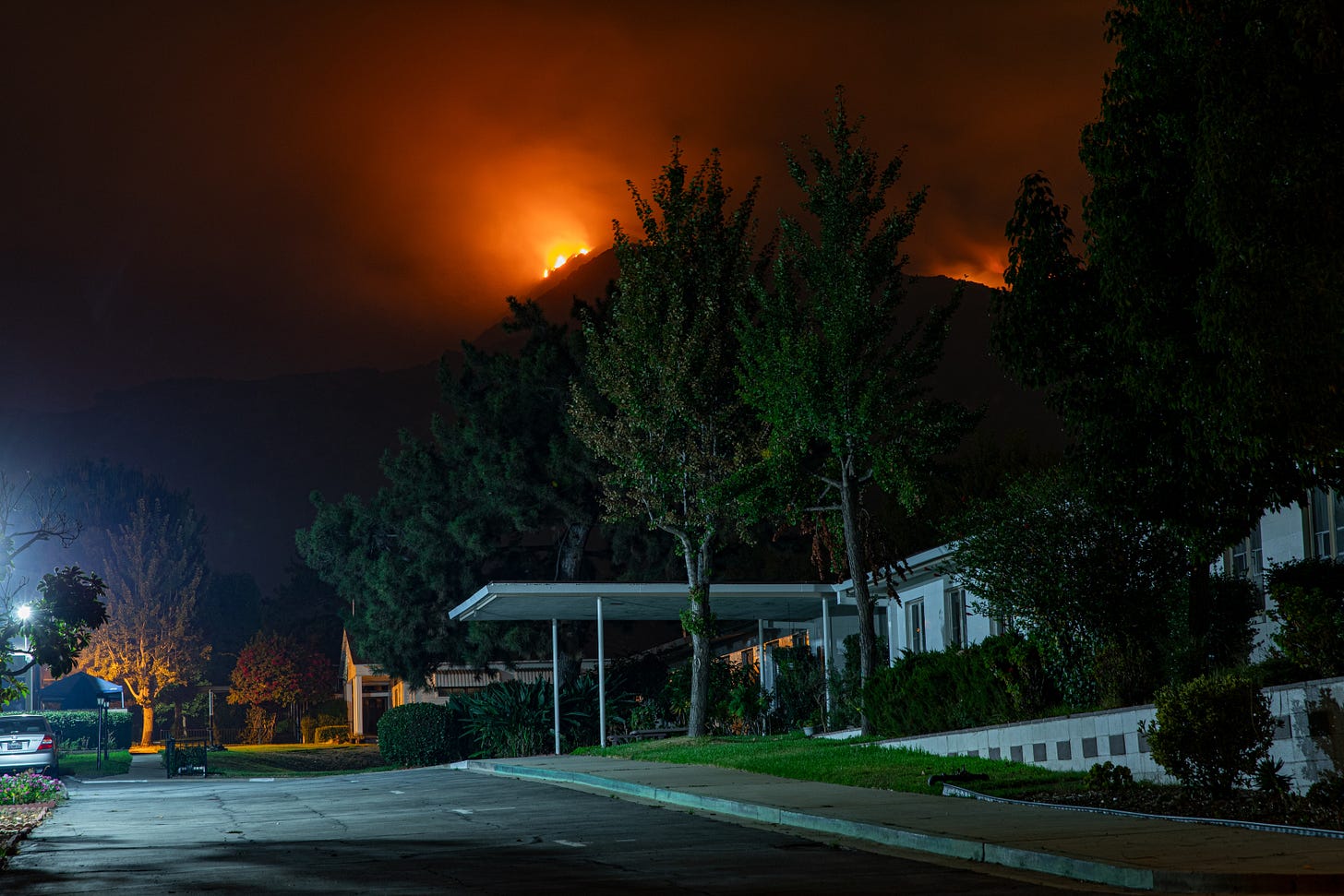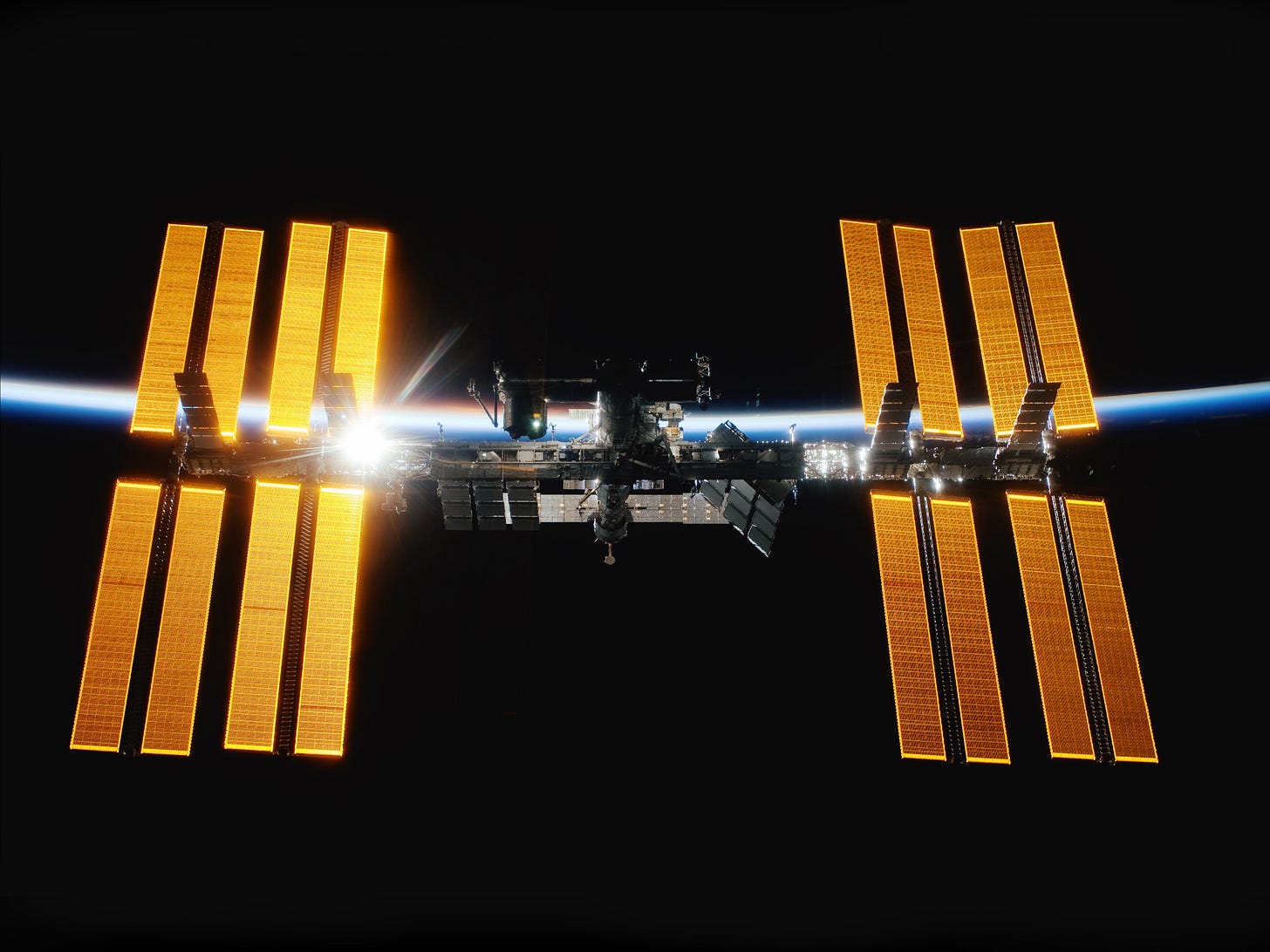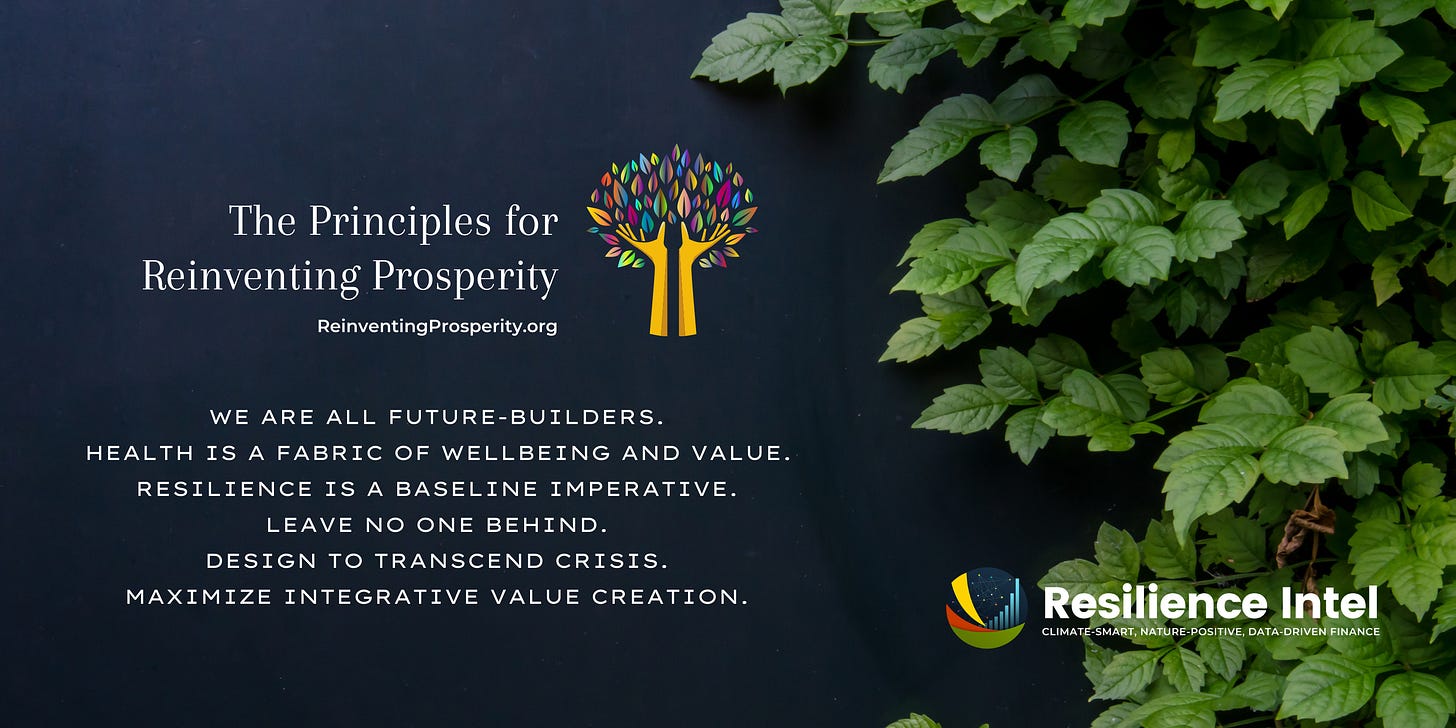No-nonsense optimism can save us from ourselves
When I started this newsletter, the idea of “Living Futures” was simple:
The foundations of our everyday existence are living systems, which make Earth hospitable to human existence.
We have to account for that in the way we think about, plan, and build our future, both personally and collectively. Any entity that suggests directly or indirectly that it can help you live a good future while ignoring or degrading those living foundations of future wellbeing… is lying to you. We have the math to make this clear, but our economic systems tend not to know how to include that math.

Lately, there is a lot of alarmingly horrible news:
Fires—The 2021 wildfire season—in North America and Siberia—is on pace to surpass the worst in history. Fires now rage nearly year-round. The Caldor Fire is the first to overtop the Sierra Nevada, threatening South Lake Tahoe and forcing evacuations downslope into Nevada. Fires in Canada have blanketed North America with toxic particulate pollution, and even the Boundary Waters Canoe Area (BWCA) Wilderness has been closed due to fire.
Storms and floods—Scientists expressed shock at the scale and severity of flooding across Europe. Pakistan experienced yet another rash of devastating floods. Hurricane Ida became one of the most powerful ever to make landfall in the United States, and caused death and destruction as unrelenting rains flooded New York City and the surrounding region days later.
Permafrost—A new study finds the “Methane bomb” expected from Siberia’s melting permafrost will be far worse than expected, as thawing rock formations are also releasing trapped ancient Methane. This means global heating impacts on Siberian permafrost will have a possibly irreversible accelerating impact making temperature rise still worse.
Gulf Stream—Scientists have already identified warning signs that the Gulf Stream, a key climate-regulating ocean current, could be moving toward collapse. Add this to evidence the Atlantic Meridional Overturning Circulation was already flowing at its weakest level in at least 1,600 years, and we are clearly risking irreversible climate disruption.
Food—Climate impacts are putting food systems at risk, around the world. US food-growing regions are experiencing a prolonged megadrought. Every nation’s most significant driver of preventable illness is food systems, and unsustainable food systems increase risk of pandemics from disease spillover events, while also worsening the health impacts and spread of novel viruses.
There is now mounting evidence that more frequent and intensifying natural disasters are bankrupting local governments across the United States. Federal authorities have warned the financial system is at risk of collapse, and now there is concern worsening climate impacts may destabilize the global financial system, while we are still unprepared to handle the shock.
In the work of converting unsustainable systems to sustainable practices and priorities, such bad news is often held up as reason to discard optimism, to treat optimism as false hope. That, to me, is not logic, but despair, and as a good friend once said of his team’s daring journey through the Northwest Passage, on a small sailboat, “despair is not allowed”.
As a problem gets worse, our sense of urgency intensifies, and rightly so, but urgency and difficulty should never—if we are thinking clearly—lead us to pessimism. Pessimism is false prophecy.
Optimism is simply the proposition that if we aim for anything, we should aim for the best outcome within the realm of the possible.
Not having the clarify of mind, or the full body of evidence, to understand that something is possible does not mean it is not. This is where the no-nonsense part comes in. It is nonsensical to refuse to pursue the best possible outcome, simply because you don’t yet have full understanding. Your own knowledge is not the whole truth of what exists or what is possible.

If you casually told a friend in the year 1850 that we could send intelligent, remote-controlled “sensitive” spacecraft to Saturn, you would likely be told that was not feasible. And yet, we have already done that and quite a lot more.
Human beings have been to the Moon and back, and our robotic emissaries are exploring Mars on land, in flight, and from orbit.
Voyager 1 has traveled beyond the furthest reaches of the Solar System and has entered interstellar space.
We have mapped the human genome and begun to target therapies based on specific information stored there.
We can now track the flow of pollutants and climate patterns from space and integrate that data into consequential decisions.
We have found extremophile life-forms in the deep sea, around volcanoes, and which can survive in space.
We are now mapping the chemical signatures of atmospheres on exoplanets orbiting other stars.
No-nonsense optimism means you treat the greatest challenges not as two-sided contests between hope and despair, but as complexes of problems to be addressed separately and in sequence.
Reinventing finance so it is optimized to reach the billions of people now excluded from such services, while integrating Earth systems data, and delivering sustainable, health-building and resilient systems, will entail numerous inventions, innovations, and disruptions. Incumbency will not prevent those disruptions from carrying weight; future prosperity requires we figure out what works and then do more of it.
Healthy, sustainably produced food needs to be the norm—the mainstream standard for people of all levels of affluence and influence. We cannot afford to seek cover in the old excuses—the nonsense proposition that investing in the proliferation of harm won’t have serious consequences.
We cannot afford to keep botching pandemic prevention and response. COVID-19 has been far too costly in lives and treasure, and for the integrity of human systems we have come to depend on. We must redirect the forces that make pandemics like COVID-19 more likely, so we build, instead of eroding, macrocritical resilience.
We can do all of this and more. We can infuse everyday decision-making with integrated flows of Earth systems insight. We can reinvent finance to reach the billions now underserved. We can transform food systems so everyday activity maximizes human health and builds resilience against major shocks.
Technological change carries risks, but it also affords new ways of doing what we do everyday. 50 years from now, we should expect the systems we depend on to be at least as different from where we are now as our systems are from those that shaped human experience in 1971.
Accelerations in problem solving capability will be even more pronounced, however, because we start from a world in which:
half of all people have supercomputers in their pockets;
quantum computing is revving up;
3D-printing (also known as additive manufacturing) is already happening;
we have unprecedented understanding of how the fluid dynamics of Earth systems affect our everyday prospects for wellbeing.
No-nonsense optimism is our best hope.
More than any ideology, more than any single technology, more than any facile dismissal of better outcomes, a no-nonsense commitment to do everything we can, to solve the little problems that make big problems solvable, must govern our choices. We have disrupted the living systems we depend on more than we can safely risk; now, we need to invent the living futures that will save us from ourselves.
To learn more about the no-nonsense approach to reinventing prosperity and building resilient, adaptive systems that serve everyone, go to ReinventingProsperity.org


